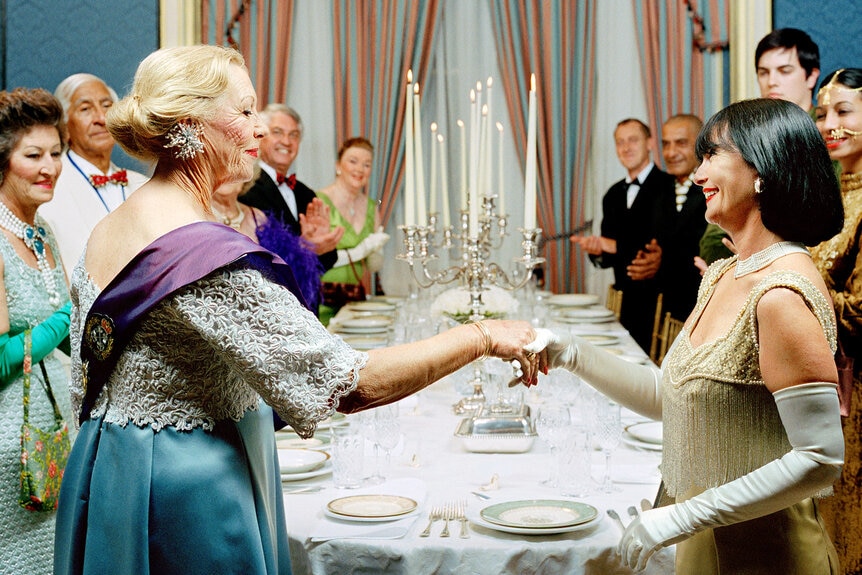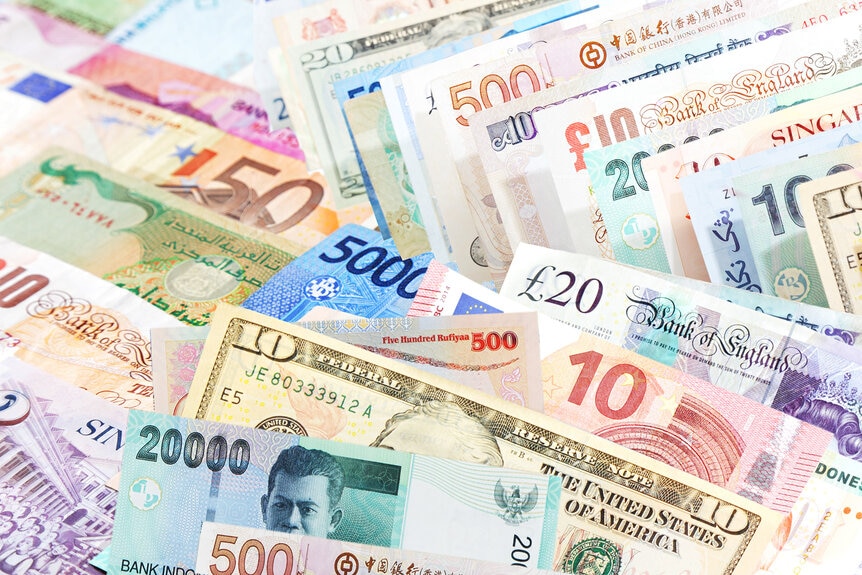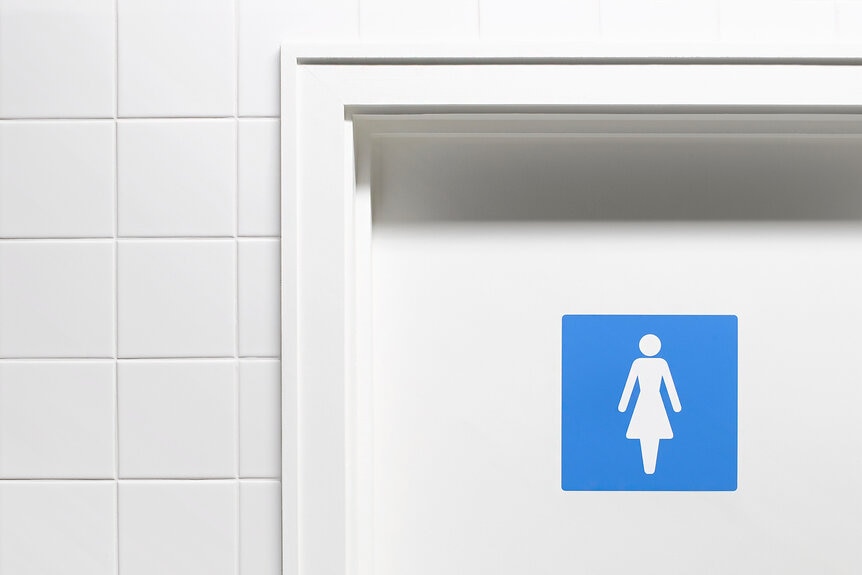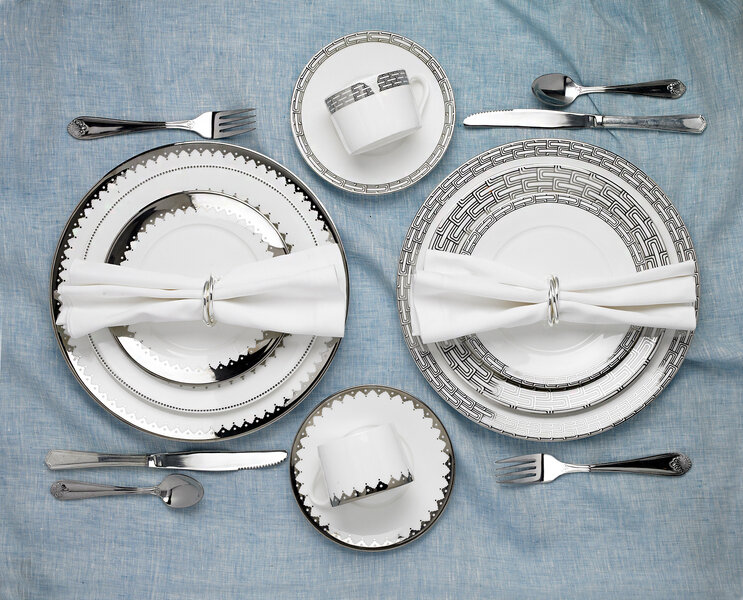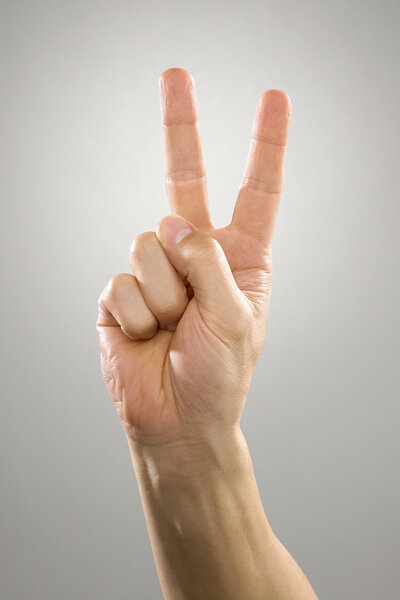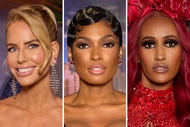
Create a free profile to get unlimited access to exclusive videos, sweepstakes, and more!
10 Things Americans Do That May Accidentally Offend Brits
#LadiesofLondon often makes us ponder the dos and don'ts of British etiquette.

Much of the drama on Ladies of London revolves around the proper way to behave in British society. Is it wrong to parade around that pair of knickers you just got as a gift? Is doing a headstand at a dinner party only appropriate when a Danish baroness dares you? Is it rude to straddle someone else's husband while wearing a unicorn onesie?
Each debate over etiquette on Ladies of London shows that though the United States and the United Kingdom have had a special relationship for decades, there are still many customs that get lost in translation.
"I believe the greatest difference between American and British etiquette is formality — Americans are generally more casual, both in lifestyle and culture," Myka Meier, the founder and director of New York-based Beaumont Etiquette, told The Daily Dish. "Great Britain has customs and etiquette that date back long before America was established, and those customs and traditions have stayed true to hundreds of years and generations."
Though some etiquette experts agree that the modern globalization of culture has made the rules of etiquette less rigid in both countries, there are still many ways Americans behave that would be big no-nos across the pond. If you dream of one day making it in British society as the Ladies of London have, here are some rules you might want to keep in mind.
1. Introducing Yourself
Simply walking up to someone and introducing yourself is a big faux pas in some English social circles. When you walk into a party, you're supposed to greet the hostess first, who will then introduce you to everyone else, Tamiko Zablith, the founder and CEO of the London-based international social etiquette consultancy Minding Manners, told The Daily Dish. There's also a hierarchy of who gets introduced to who based on gender, age, and marital status, with social standing taking precedence overall.
"The standard etiquette rule is you do not exist until someone has introduced you," Zablith said. "These are the sort of things in America we let go of ages ago, but I think it does still matter here in very formal, conservative circles."
2. Talking About Money Instead of the Weather
Though talking about money can sometimes be seen as taboo in the U.S., it's more freely discussed by Americans than among the British, who would never talk about how much something cost or even mention getting a big bonus at work, Henry Hitchings, the author of Sorry! The English and Their Manners, told The Daily Dish.
Instead, discussing the weather is a cornerstone of English conversation, Zablith said. Though that may sound like a trivial and banal subject to chat about while sipping cocktails, your thoughts on a heat wave or cloud coverage can actually reveal a lot about your personality.
"They can find out quite a bit, are you negative or are you positive," Zablith told The Daily Dish. "You know, if you say, 'Again, another rubbish day,' that's obviously put us on the wrong side, whereas if we can say, 'Oh, what a great day to be a tree or a flower,' that can say a lot about us as well."
You might want to keep that in mind the next time you complain about the rain.
3. What You Say and How You Say It
Brits and Americans may both speak English, but that doesn't mean they always speak the same language. Just by watching Ladies of London, you've probably realized that Americans and Brits use different words to mean the same thing, which often doesn't do much damage other than cause a lot of confusion. For example, instead of saying "bathroom," "elevator," or "line" as an American would say, a Brit would say "loo," "lift," or "queue," Meier told The Daily Dish.
But even when Americans and Brits use the same word to mean the same thing, their pronunciations can differ, which can "drive Brits nuts," Hitchings said. Some pet peeves include saying the word "herb" without pronouncing the "h," not saying words like "hostile," "versatile," and "mobile" as if they rhyme with "mile," and pronouncing the word "filet" (spelled "fillet" in the U.K.) as the French do with a silent "t."
Even the British have some innocuous slang words that would raise eyebrows in the U.S. For instance, if during a wild night out, your British friend says he or she is "pissed," that doesn't mean you've made him or her angry, just that he or she has had one too many drinks. Let's just hope your pal isn't an angry drunk.
4. Crossing Your Legs
Even the way you sit could be a dead giveaway that you're American. Many American women believe sitting with their legs crossed at the knee looks "ladylike," but a lady in Britain would always cross her legs at the ankle, according to Meier. Clearly, sitting pretty is in the eye of the beholder.
5. How You Stick a Fork in it
Meier told The Daily Dish that "probably one of the most obvious distinctions" between American and British etiquette takes place at the dining table. Americans will cut up all of their food, put the knife down, and then only have a fork in their hand with the prongs facing upward as they bring food to their mouths. However, the British will keep a fork and knife in their hands the whole time they're dining with the prongs facing downward as they eat. Extra credit goes to those who can master this subtle bit of British etiquette.
6. Virtual Greetings and Goodbyes
Because of the ease with which you can write and send emails today, many people are much more casual with them than the almost-antiquated handwritten letter. It's hard to maintain that formality when Santa Claus emojis and cat GIFs accompany your words, after all.
However, in some British social circles, emails are still treated as a formal form of correspondence. While Americans may start an email with "Hi," "Dear" is still the way to go, according to conservative English standards, Zablith told The Daily Dish. What's more, an American might sign off an email with a quick "Best," but many in British society still use the more formal "Best regards," according to Meier. If we had to guess, you should probably not include any emojis or GIFs in a proper English email either.
7. Smiling
Flashing those pearly whites may be a way for many Americans to communicate happiness or friendliness toward others, but doing it too often is looked down upon in some English social circles because it shows a "lack of self-control, lack of education, lack of breeding," Zablith told The Daily Dish. So that's why Caroline Stanbury rarely smiles on Ladies of London — or she could actually never be amused. It's a toss-up.
8. Being a Show-off
The British have a reputation for being much more reserved than Americans. You know, "stiff upper lip" and all that jazz? Along those lines, they tend to show more restraint when talking about themselves, so much so that they might not do it at all.
"It is still widely considered vulgar in Britain to boast about one's accomplishments — even to mention them," Hitchings told The Daily Dish.
An American might brag about his or her tennis serve, but a talented British tennis player might say he or she is "not bad" at the game, according to Hitchings. Though Americans love to show their school pride by wearing collegiate apparel, the British don't like to advertise where they went to university as much. Huh. You'd think that someone who graduated from Oxford or Cambridge would want to shout it from the rooftops.
9. Making a Wedding Fashion Faux Pas
If you're a gentleman and you get invited to a wedding in British society, you should probably wear morning dress, which consists of a morning coat or tailcoat, waistcoat, and usually gray striped trousers, Liz Brewer, a leading etiquette expert in the U.K. and author of Liz Brewer's Ultimate Guide to Party Planning and Etiquette, told The Daily Dish. If you instead adhered to the more American black-tie dress code at a wedding, you'd most likely look out of place, and we all know that all eyes should be on the bride and groom on their big day.
10. Giving the Two-Finger Salute
If you're really angry with someone, you might be tempted to show him or her your middle finger, which conveniently conveys the same offensive message in both American and British cultures. However, if you're not and flash someone a reverse peace sign with your index and middle finger thinking you're showing some love, you'll actually be saying the exact opposite. This might not be a hand gesture Americans do frequently, but now that you know what it means, you definitely shouldn't do it overseas. Unless, of course, you want to rile someone up. Then by all means, go for it.
Take a look at what we can expect this season on Ladies of London.

